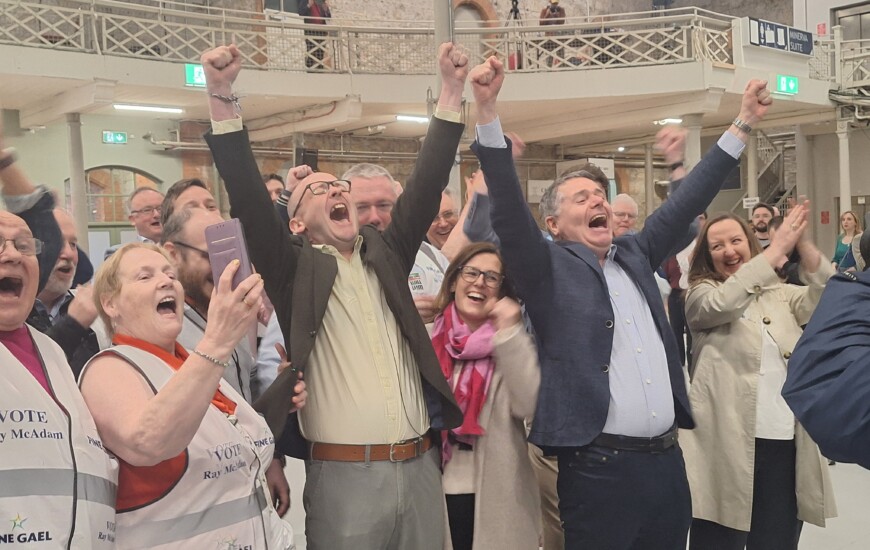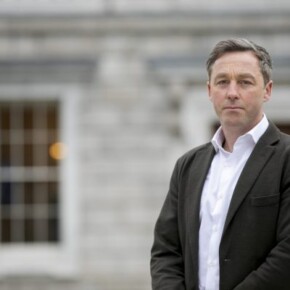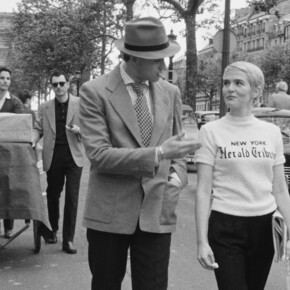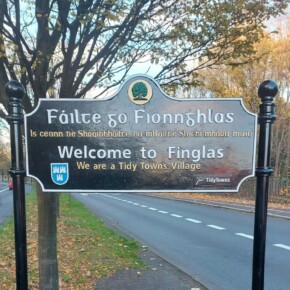Report card time for the major parties
Mike Finnerty 19 Jun 2024
Just as plenty of students are expecting to receive report cards at the end of the school year, we have drafted up a report card for all of the major parties following the local and European elections.
We will be dishing out the grades on several metrics; pre-election expectations, seats won, and how it compares to the last set of elections in 2019.
Without further ado, we present the class of 2024.
Fine Gael and Social Democrats – A+
If you told someone three months ago that Fine Gael would have emerged as the unambiguous winners of the 2024 elections in Dublin, you would have been greeted with a resounding “yeah, right.”
After March’s referendum defeats and the resignation of Taoiseach Leo Varadkar, it seemed clear that Fine Gael were facing electoral oblivion in June.
These people didn’t account for the most singularly powerful thing in electoral politics; the new leader bounce.
Simon Harris’ elevation to the Taoiseach’s office was the shot in the arm the party needed (at least as far as these elections are concerned).
By every metric, Fine Gael are the big winners in Dublin.
The party are now the biggest party on Dublin City Council, South Dublin County Council, Dún Laoghaire-Rathdown Council and Fingal County Council.
A convincing win in Europe for Regina Doherty is the cherry on top.
There are indications that the party are willing to strike when the iron is hot and call an autumn election.
The Tories are on track for an election hammering after 14 years in power across the Irish Sea; Fine Gael have somehow had a resounding set of election wins in their 13th year in charge.
Perhaps Rishi Sunak should ring up Simon Harris for advice on how to come back from the dead politically.
As we predicted in the months leading up to the elections, the Social Democrats met the moment head-on and stole a march on Sinn Féin and the Greens.
From Sinn Féin, they wooed the progressive-minded voter who rocketed them to the top of the polls between 2020 and 2023, and from the Greens, they won over the idealistic dreamers who found that compromising on values during coalition wasn’t their cup of tea.
The party, which is turning 10 years old next year, will celebrate their 10th birthday as the 2nd biggest party on Dublin City Council.
Sinn Féin ran 30 candidates and only got nine elected onto Dublin City Council – the Soc Dems ran 13 and got 10 of their candidates across the line.
Over the course of counting it became very clear that the party are exceptionally transfer-friendly, drawing support from everyone from Fine Gael to People Before Profit voters.
The party increased its membership count on South Dublin County Council, and maintained its presence on Dún Laoghaire-Rathdown Council.
At the RDS count centre, director of elections and deputy leader Cian O’Callaghan was a very happy man; and why wouldn’t he be?
It turns out that having a popular, youthful leader who actually has principles and sticks to them is a major appeal to voters.
The only sore point for the party is not quite getting Sinéad Gibney over the line in Europe, but they can console themselves by increasing their presence on South Dublin County Council and holding steady on Fingal and Dún Laoghaire-Rathdown County Council.
Labour: A-
As LL Cool J once said, “don’t call it a comeback, I’ve been here for years.”
Labour has just pulled off their best set of election results in Dublin in a decade.
Dublin Bay North TD Aodhán Ó Ríordáin won the first European seat for the party since 2009 in what marks a major turnaround for the party.
The party tied with Fine Gael for the most seats won on Fingal County Council, marking their best result on Fingal County Council since 2009.
Winning a seat at the expense of Green MEP Ciáran Cuffe and left-wing MEP Clare Daly is a vindication of Labour’s strategy; nice and steady wins the race.
It appears Labour took quite a bit from Sinn Féin and the Greens, as proven with electoral victories for first-time candidate Ali Field out in Clontarf and John Walsh taking advantage of the Greens losing 20% of their vote in Castleknock to increase his vote share.
The party going from 8 councillors to 4 on Dublin City Council will be a sore point for the party but a convincing victory South-West Inner City will smooth over the cracks.
South of the Liffey, the party went from 2 councillors to 3 on South Dublin County Council and held relatively well on Dún Laoghaire-Rathdown Council, going from 6 councillors to 5.
At the RDS, party leader Ivana Bacik told this newspaper that the party is at its best while on the campaign trail and connecting with voters; based on June 7, she may well be onto something.
People Before Profit-Solidarity – B+
To Labour’s left, it was a solid day for People Before Profit-Solidarity (and we know just how much these two parties will love being mentioned in the same breath).
The big story for the leftist alliance is the return of Ruth Coppinger to electoral politics following her victory in Castleknock.
The former TD won a seat and will serve as a rock-solid base for her to launch another Dáil run.
South of the Liffey, where the alliance are strongest, the party won 4 seats on South Dublin County Council, and held onto their existing seats on Dún Laoghaire-Rathdown Council.
On the European front, Bríd Smith’s name recognition was a major factor in her placing above the Social Democrats’ Sinéad Gibney, but it wasn’t quite enough to secure a seat.
The alliance went into this election with the clear intent of sending Sinn Féin a message; the party has taken the left flank for granted.
They did a decent job of doing just that.
Independent Ireland/Aontú – B-
Forming a new party and getting defections is easy; electioneering is quite another thing.
Independent Ireland didn’t even exist this time last year, but now they have 3 TDs and 23 councillors nationwide.
2 of those councillors are based in Dublin which has come as something of a surprise.
Typically thought of as a rural party, Independent Ireland managed to get a seat on Dublin City Council following a victory by Olympic boxer Pat Sutcliffe in Ballyfermot-Drimnagh.
Out in Clondalkin, Linda de Courcy won a seat on South Dublin County Council.
Niall Boylan was in contention for the final European slot until the bitter end in something of a surprise.
Boylan attained 8.1% of first preferences, more than the outgoing Clare Daly and People Before Profit TD Bríd Smith.
While it wasn’t enough to win a European seat in Dublin on this occasion, Independent Ireland have shown there is a base for their brand of politics in Dublin.
Aontú, meanwhile, built on strong 2019 election results in Dublin 15 and got two candidates elected to Fingal County Council for their trouble; Ellen Troy and Gerard Sheehan.
The party were less successful on Dublin City Council but one gets the impression that winning anywhere in Dublin would be considered successful within the party.
There may be a feeling that the party didn’t really take advantage of their decent polling in the wake of March’s referendums defeats – Aontú were the only major party to call for No-No vote – but the party performed well outside of Dublin.
Euro candidate Aisling Considine came within 73 votes of outpolling Sinn Féin’s Daithí Doolan and the party outpolled Sinn Féin’s two candidates in South-West Inner City in what will please party leader Peádar Tóibín no end.
Analysts will ask where did Sinn Féin’s voter base from 2020 go – the evidence shows quite a few of them have bolted for Aontú.
Green Party – C-
This year was always going to be a comedown after the highs of 2019 and 2020.
Yet despite what social media would have you believe, the Greens didn’t face an election wipeout.
Their losses on Dublin City Council are masked by virtue of them not running as many candidates, and victories for Feljin Jose in Cabra-Glasnevin, the re-election of Hazel Chu on the first count and Michael Pidgeon easily winning re-election means that the Greens will have quite a say in the running of Dublin City Council until 2029.
The Greens were fully wiped out on South Dublin County Council going from 4 seats to zilch and went from 5 seats to one on Fingal County Council, with veteran councillor David Healy the only survivor.
Down in Dún Laoghaire-Rathdown, the party remained on 6 seats which points to a strong voter base in that part of Dublin.
There are signs that the party remains transfer-friendly across the spectrum, but it has also become blinkingly apparent that they have lost ground to the Soc Dems and Labour for the soft left vote.
The loss of Ciaran Cuffe in Europe is the capper on a mixed set of results for the junior coalition partner.
Since the election, party leader Eamon Ryan and deputy leader Catherine Martin have stepped away which may give readers who were around when Eamon Gilmore resigned following Labour’s 2014 electoral hiding a striking sense of deja vú.
Fianna Fáil – D+
Barry Andrews topping the poll for Europe is the only saving grace on what was a tough day for Fianna Fáil.
It must be so frustrating for Fianna Fáil – their coalition partner gets a shiny new Taoiseach and an election bounce while they have to contend with scraps.
Going from the biggest party on Dublin City Council to losing seats will rankle them, as well as losing 2 of their outgoing mayors – Lord Mayor Daithí de Róiste lost his seat in Ballyfermot-Drimnagh.
Falling behind the Greens in Dún Laoghaire-Rathdown and tying with Sinn Féin on South Dublin County Council are blemishes on Fianna Fáil’s election record.
2019 and 2020’s elections showed that the Dublin electorate specifically had forgiven Fianna Fáil for 2008, but June 7th indicates that the voters have had their summer fling and have left for Fine Gael.
Of course, Fianna Fáil’s general election machine is powerful enough to overcome any hurdles and the party seems to perform best when their backs are against the wall.
Fianna Fáil actually won the most seats nationwide, but for the purposes of this article they did poorly in Dublin, and their 2019 victories in Dublin were such a crucial part of their comeback.
These election results are a setback, but not a fatal blow.
Sinn Féin – D-
The victory of Lynn Boylan in Europe is the only thing preventing Sinn Féin from winning the wooden spoon here.
This was supposed to be Sinn Féin’s coronation ahead of an impending general election and proceeded to blow it in spectacular fashion.
If you went back to this time last year and told someone that Sinn Féin blew the 2024 locals you would have gotten some funny looks.
What more can be said about the party running 30 candidates for Dublin City Council and only getting nine elected?
In numerous constituencies the party ran four candidates and struggled to get just one over the line.
In Cabra-Glasnevin, home turf of party leader Mary Lou McDonald, the party ran four candidates and only got one elected.
A mere 16.9% of first preferences spread across four candidates is nothing short of a debacle for Sinn Féin, especially in an area such as Cabra-Glasnevin.
In Clondalkin, the backyard of Eoin Ó’Broin, the party ran four candidates and could only muster 15.9% of first preferences between them and one successful candidate.
Eoin Ó’Broin did actually win in Clondalkin, it just happened to be a Social Democrats candidate with the same name.
The party ran 21 candidates on South Dublin County Council and got just five elected.
For a party that tried so hard to ape Charles Haughey-era Fianna Fáil they proceeded to give voters the supermarket own-brand value version.
Sinn Féin spending the last 4 years failing to make friends ended up biting them in the backside, with the party broadly failing to pick up transfers from parties they should be appealing to like Labour, the Soc Dems and People Before Profit.
As we said in our election preview, there was a gap on the Irish left following the 2020 election that Sinn Féin should have sewn up and they ended up running in the other direction.
The leader of Sinn Féin going on national media saying the party doesn’t believe in open borders is like something from an episode of The Day Today.
If you want to drill down into why the Soc Dems and Labour (as well as People Before Profit) did so well, we point you to any and all contradictory statements made by Sinn Féin over the last 6 months.
Declaring their corporate tax plan would be the same as Fine Gael and Fianna Fáil, supporting Fine Gael’s cutting of welfare rates for Ukrainian refugees, going against their voter base by visiting America during an ongoing Middle Eastern war, promising to re-run March’s referendums should they be defeated and instantly going back on that promise and having next to no environmental policy to speak of are just some of Sinn Féin’s greatest hits.
It can also be argued that just as many of their former base defected to the likes of Aontú or independent candidates that were anti-immigration or were more on the socially conservative side of things.
Coupled with the leftist college student type bolting for the likes of the Social Democrats or PBP over their stance on Gaza, it appears that Sinn Féin suffered death by a thousand cuts.
Having a voter base fracture just before a general election is a bad omen for a party and this isn’t an issue that can be sorted over a summer break.
Of course, Sinn Féin performed terribly in 2019 and ended up winning the popular vote in a general election that took place not long after that.
There is still time for Sinn Féin to turn it around, but it needs to be done sooner rather than later.











